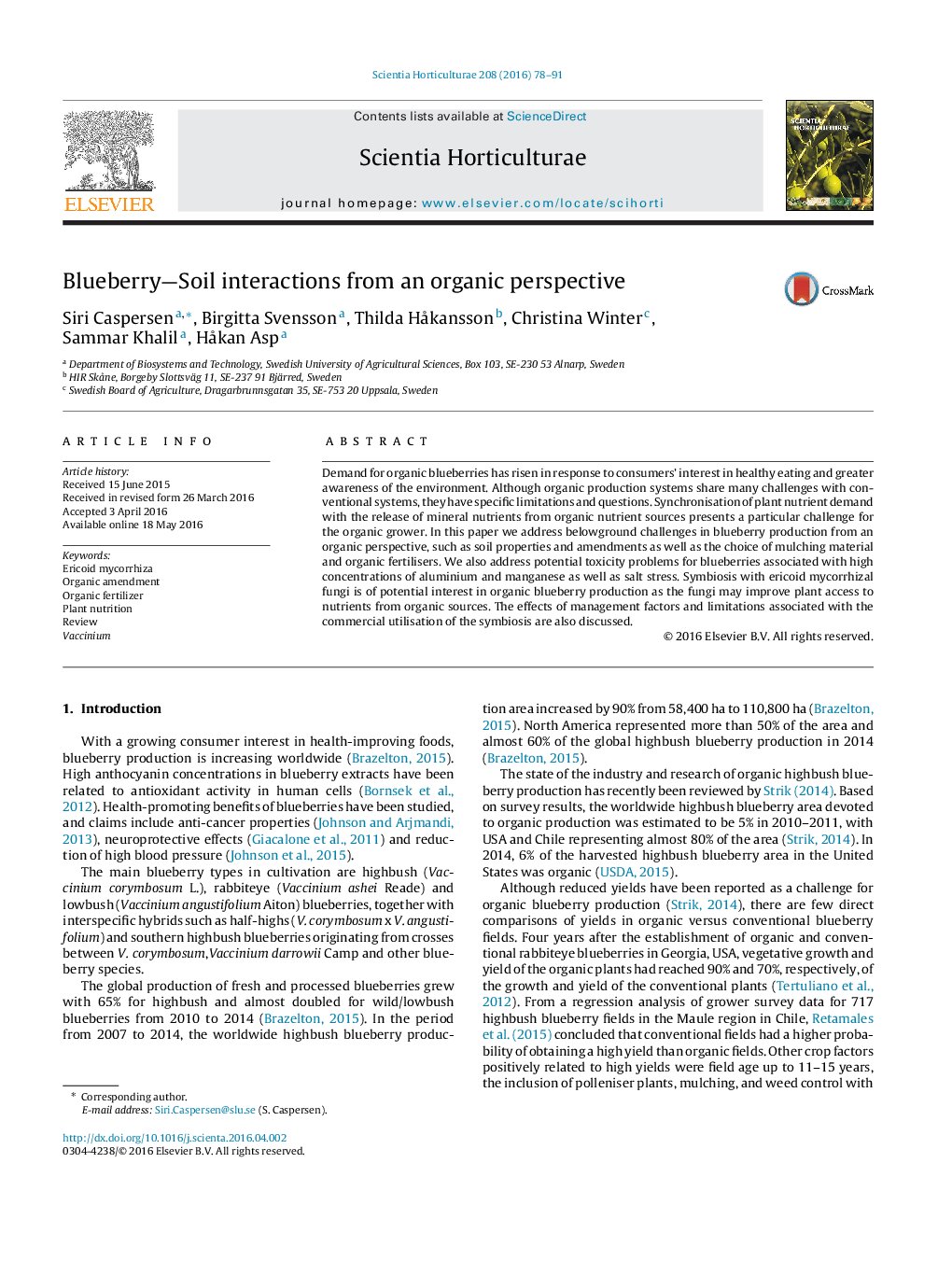| Article ID | Journal | Published Year | Pages | File Type |
|---|---|---|---|---|
| 6406283 | Scientia Horticulturae | 2016 | 14 Pages |
â¢Blueberries are suited to organic production but mineral nutrient balance is a challenge.â¢Organic amedments with high pH, nitrogen, potassium, sodium or chlorine contents may limit growth and yield.â¢Effects of inoculation with ericoid mycorrhizal fungi depend on genetic and soil factors.â¢Soil properties, organic amendments and cultivars are factors for successful production.
Demand for organic blueberries has risen in response to consumers' interest in healthy eating and greater awareness of the environment. Although organic production systems share many challenges with conventional systems, they have specific limitations and questions. Synchronisation of plant nutrient demand with the release of mineral nutrients from organic nutrient sources presents a particular challenge for the organic grower. In this paper we address belowground challenges in blueberry production from an organic perspective, such as soil properties and amendments as well as the choice of mulching material and organic fertilisers. We also address potential toxicity problems for blueberries associated with high concentrations of aluminium and manganese as well as salt stress. Symbiosis with ericoid mycorrhizal fungi is of potential interest in organic blueberry production as the fungi may improve plant access to nutrients from organic sources. The effects of management factors and limitations associated with the commercial utilisation of the symbiosis are also discussed.
